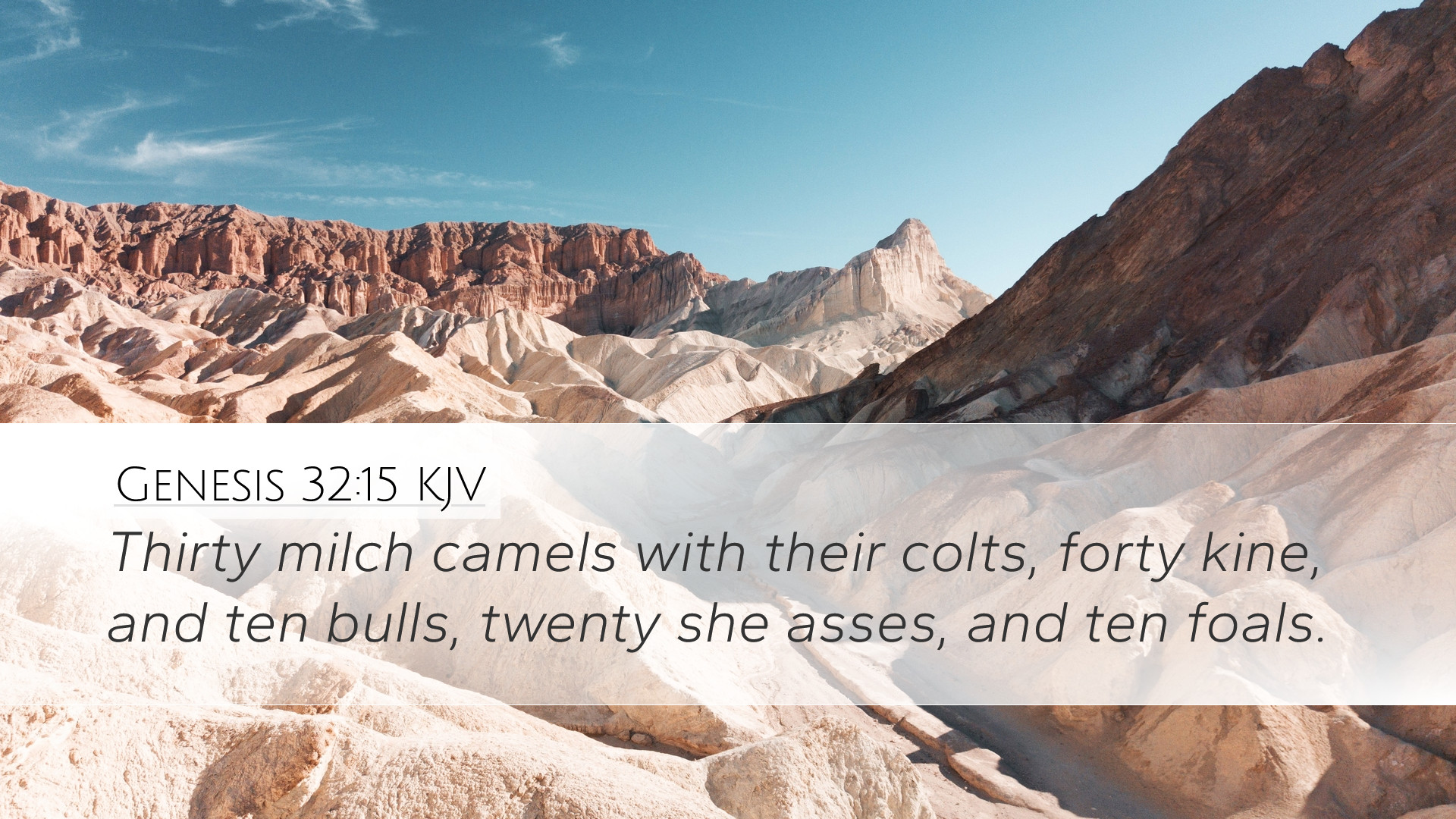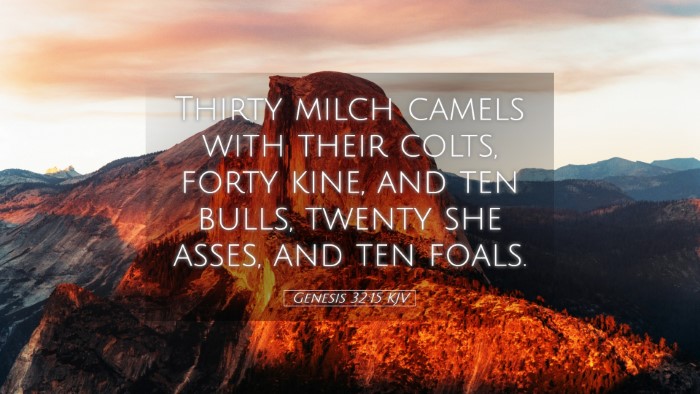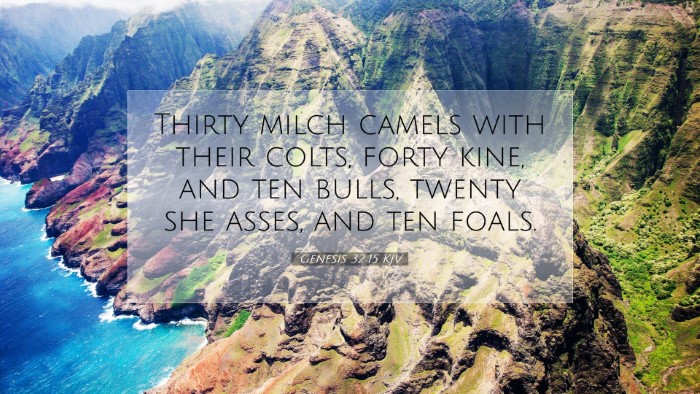Commentary on Genesis 32:15
Bible Verse: Genesis 32:15 - "And thirty milch camels with their colts, forty kine, and ten bulls; twenty she asses, and ten fold;".
Introduction
The context of Genesis 32:15 reveals a significant moment in Jacob's life, where he is preparing to meet his brother Esau after many years apart. The message conveyed in this verse about Jacob's gifts to Esau is rich in symbolism and significance, illustrating key themes of reconciliation, humility, and divine providence.
The Gifts as a Means of Reconciliation
Matthew Henry emphasizes the strategic and thoughtful nature of Jacob’s gifts. He notes that the multitude of livestock signifies Jacob’s wealth and serves as a peace offering. The choice of animals, including milch camels and kine, reveals his desire to make a substantial gesture that might appease Esau’s potential anger:
- Henry explains that by sending a variety of animals, Jacob acknowledges the past wrongs between them and hopes to show humility and reliance on God's mercy.
- This offering serves not only to pacify Esau but also marks Jacob's recognition of his own unworthiness and dependence on divine favor.
Symbolism of the Animals
Albert Barnes provides insight into the specific animals mentioned. Each type of animal symbolizes different aspects of wealth and social status in the ancient Near East:
- Milch camels: These represent both wealth and the capability to provide sustenance, emphasizing Jacob’s provision.
- Kine and bulls: Large cattle symbolize strength and prosperity, enhancing Jacob’s image as a man of status.
- She asses: These symbolize availability and utility, underlying care for community and reconciliation.
Barnes notes that the careful selection of these animals signifies an understanding of Esau's needs and an effort to mend their broken relationship.
The Role of Generosity
Adam Clarke highlights the importance of generosity in relationships. He argues that Jacob’s act of giving demonstrates a heart willing to sacrifice for the sake of peace:
- Clarke suggests that Jacob’s offerings invoke the biblical principle that giving can lead to receiving, embodying God’s promise that those who sow generously will also reap generously (2 Corinthians 9:6).
- This generosity underpins Jacob's humility, which is essential in approaching Esau, framing his actions in light of reconciliation rather than self-justification.
Divine Providence and Preparation
In conjunction with these insights, it is essential to recognize the overarching theme of divine providence. Jacob’s preparations for meeting Esau are set against the backdrop of God’s promises and previous interventions in his life. Henry notes:
- Jacob’s anxiety about the encounter reflects his awareness of his past deceit and the need for God’s assistance.
- This verse can be viewed as a culmination of Jacob’s spiritual growth, moving from a place of fear towards dependence on God’s orchestration of events.
Conclusions for Pastors and Theologians
For pastors, theologians, and students of Scripture, Genesis 32:15 serves as a poignant reminder of the importance of reconciliation through humility and generosity.
As they lead discussions around this text, the following reflections might serve to deepen understanding:
- Reflect on the importance of humility: How can modern believers apply Jacob’s example in their lives?
- Consider the role of giving: What does this passage say about the nature of true gifts given in love?
- Explore divine providence: How does recognizing God’s hand in situations influence our responses to conflict?
Final Thoughts
In summary, Genesis 32:15 provides rich theological context and practical application concerning the themes of reconciliation, humility, and divine providence. By closely examining the insights from esteemed commentaries, modern believers can draw deeper convictions that guide their relationships and spiritual journeys.


